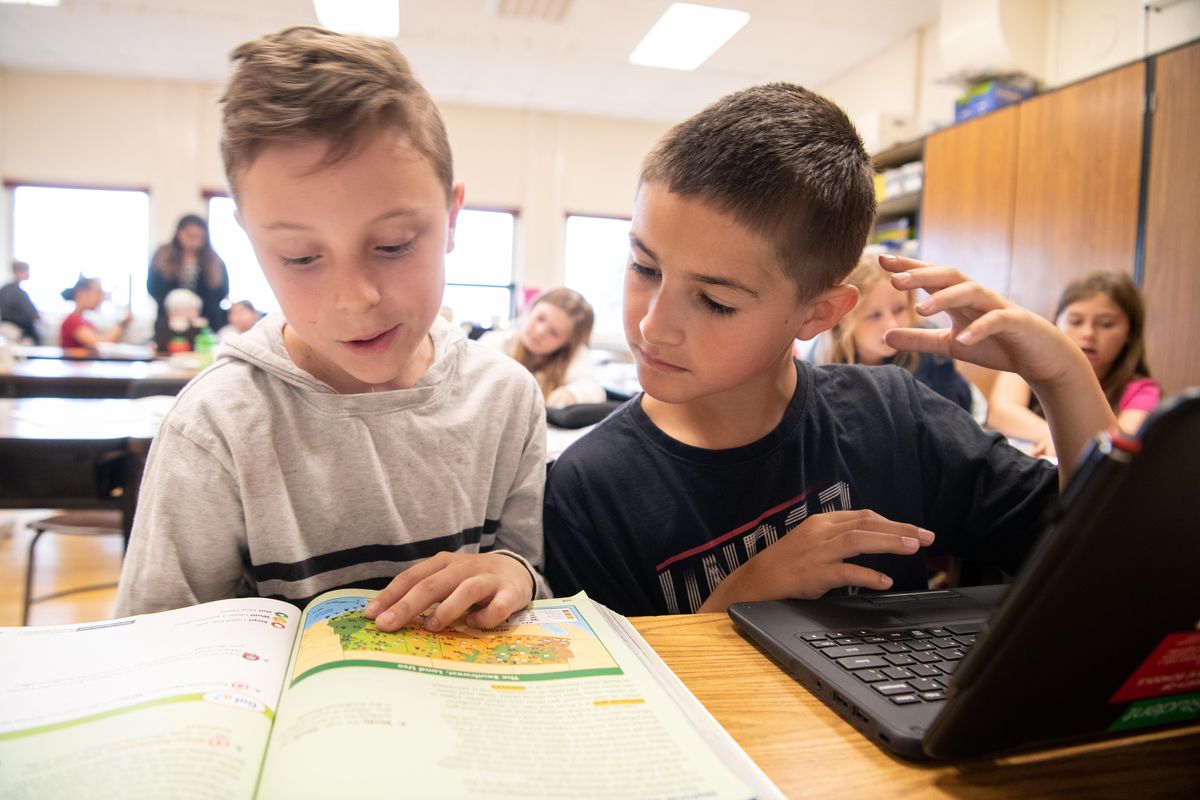Don’t let the kids take a summer break from learning

The summer slide is just around the corner, and we’re not talking about the water park at Silverwood.
For too many young students, especially low-income kids, learning takes the summer off, and the results can be shocking.
According to national studies, elementary school teachers need at least a month to regain the momentum lost during summer vacation.
Some kids need even more, said Erica Uyehara, a first-grade teacher at Adams Elementary on the South Hill.
“It takes six to eight weeks to get back on track,” Uyehara said. There are other considerations at the beginning of each school year – “learning the rules, that they feel safe and that they feel loved. Then they’re ready to learn,” Uyehara said.
The problem is even worse in the upper grades, according to Adams fourth-grade teacher Olivia Collins.

“We see their writing samples from third grade, and they’re great,” Collins said. “And then in the fourth grade – what happened?”
In short, kids were to left to their own devices, often with poor results.
For many youngsters, the leap into smartphones occurs during the summer after third grade, turning their verbiage from academic writing into text language.
Many fourth-grade teachers are left to pick up the pieces.
In the fall, Collins compensates by turning off the editing function in the Microsoft Word programs used at Adams, thereby forcing students to acknowledge that “IDK” is not an acceptable form of “I don’t know.”
However, regression happens across all subjects during the 10-week summer vacation.
So what’s a parent or caregiver to do during the summer? For many, the answers are obvious. Spokane is full of summer camps, academic and otherwise.
For those who can’t afford camps, Uyehara and Collins spoke with one voice on the importance of old-fashioned reading.
“We always tout the library, but it doesn’t have to be a place,” Uyehara said. “It’s about staying in the moment.”
For all grade levels, that can mean a real-life math while baking cookies in the kitchen: How many cups in a quart? Let’s fill up the container and find out.
If we halve the recipe, do we have enough flour? How do we find out?
“The more integration at home, the better,” Collins said.
Math can happen outdoors, too. If you’re on a hike, count the steps, suggests Uyehara. If that’s too easy, count by threes or sevens.
Above all, make it fun.
“Kids know what they want, what’s fun and not,” Collins said.
They also may find it fun to sleep in – every morning until the first day of school. That’s a bad idea, most educators agree. They suggest a consistent sleep schedule. During the summer, that means going to bed when the sun is still up; however blackout shades will mitigate the problem.
Learning happens more easily when kids are on a schedule, as long as it’s not too rigid.
“You have to be clever, it’s all about the presentation,” Uyehara said.
That includes diversion from electronic devices and television, which too often supplant books – especially during the summer.
Many parents compensate by turning on parental controls to limit screen time. That’s fine, but Collins said it’s crucial to “set those boundaries for use and sticking to it.”